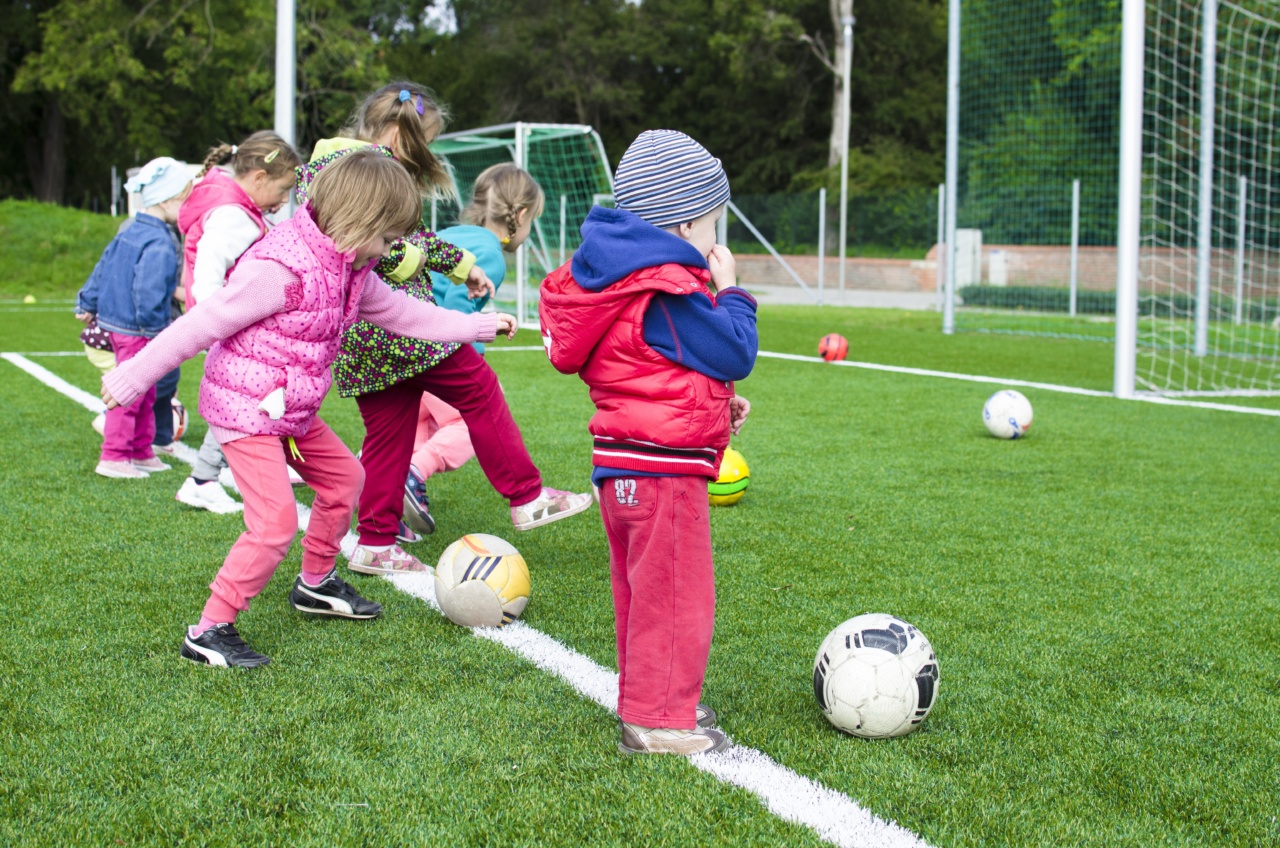Hyperactivity is a common condition in children that is characterized by excessive restlessness, impulsiveness, and inattention. The condition can affect a child’s ability to concentrate, stay focused, and complete tasks on time.
While there are medical treatments available to help manage hyperactivity, engaging children in sports activities can have a positive impact on children’s behavior, health, and well-being. Here are some of the benefits of sports for children with hyperactivity:.
1. Physical health improvement
Sports activities help children with hyperactivity to get more physically active, which can lead to better health. Regular exercise is essential in controlling weight, reducing the risk of obesity-related issues, and boosting the immune system.
Being physically active also improves bone density, increases energy levels, and helps prevent chronic diseases like hypertension, type 2 diabetes, and heart disease.
2. Improved social skills
Engaging in sports activities helps improve children’s social skills, as it offers a platform where they can interact with their peers, make friends, and develop teamwork skills.
Participating in team sports helps children develop leadership skills, learn to cooperate, and develop a sense of responsibility, which can help boost their self-esteem and confidence. Moreover, playing sports involves sharing, taking turns, and following rules, which can help children with hyperactivity enhance their social awareness and communication skills.
3. Improved behavior and focus
Children with hyperactivity often struggle with impulsive behavior and trouble staying focused. However, participating in sports activities can help improve their behavior and concentration.
To succeed in sports activities, a child must pay attention to their coach, follow instructions, and concentrate on the task at hand. This helps the child learn how to stay focused, complete tasks, and avoid impulsive decisions.
4. Enhances confidence and self-esteem
Engaging in sports activities helps children with hyperactivity develop a sense of accomplishment, boosting their self-esteem and confidence.
Winning a game, mastering a new skill, or receiving recognition for their efforts helps children with hyperactivity feel good about themselves. This helps build confidence and self-esteem, which can have a positive impact on the child’s well-being and performance in other areas.
5. Develops coping skills
Children with hyperactivity often struggle with emotional regulation, such as impulse control, emotional outbursts, and frustration tolerance.
Engaging in sports activities can help them develop coping skills and learn how to manage their emotions in a healthy way. Sports like martial arts, yoga, and meditation help children with hyperactivity learn how to relax and control their emotions, which can help them cope with stress and anxiety in other areas of their life.
6. Boosts academic achievement and cognitive abilities
Engaging in sports activities can also help children with hyperactivity improve their academic performance and cognitive abilities.
Research shows that regular exercise helps improve brain function, increasing memory, learning ability, and cognitive flexibility. Moreover, participating in sports activities requires concentration, problem-solving, and strategic thinking, which can help improve cognitive abilities and academic performance.
7. Provides a positive outlet for energy and stress
Hyperactive children often have high levels of energy and may struggle with stress and frustration. Engaging in sports activities provides a positive outlet for this energy and helps them manage stress in a healthy way.
Running, jumping, and playing sports is a great way to release energy, reduce stress, and promote emotional well-being.
Conclusion
Hyperactivity is a common childhood condition that can have a significant impact on a child’s behavior, health, and well-being. Engaging children in sports activities can help manage hyperactivity and promote healthy development.
Benefits of sports for children with hyperactivity include improved physical health, better social skills, improved behavior and focus, enhanced confidence and self-esteem, improved coping skills, cognitive boost, and a positive outlet for energy and stress. Encouraging children with hyperactivity to engage in sports activities can lead to positive outcomes that can last a lifetime.































